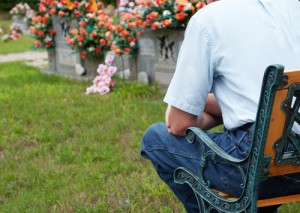
A wrongful death is an unnecessary death caused by the negligence of another person, such as a drunk driver, a medical professional, or the manufacturer of an unsafe product.
Wrongful Death in Colorado
The purpose of Colorado wrongful death law is to protect the interests of those who must bear the financial and emotional burden of a loved one’s death, due to no fault of their own. The claimants in a wrongful death action are required to prove that the defendant negligently caused the decedent’s death. The statute of limitations for wrongful death in Colorado is two years from the date of death, but it can extend past that if the plaintiff has a disability or if the defendant has engaged in fraudulent concealment of facts regarding the claim.
Who Can Bring a Wrongful Death Lawsuit in Colorado?
The parties entitled to bring a wrongful death claim in Colorado include the spouse, heir or heirs, or a designated beneficiary. Heir or heirs refers to lineal descendants, and does not apply to nieces, nephews, siblings, or adult adoptees. Others who may potentially make a wrongful death claim include the surviving parents of an unmarried and childless decedent.
More than one family member may be a beneficiary of a wrongful death award in Colorado. Under Colorado law, the amount recovered is distributed in proportion to the pecuniary damages suffered by each individual. The parents of the deceased person are not allowed to file a wrongful death claim if the deceased person had a spouse or a child, even if the spouse or child decides not to make a claim.
Wrongful Death Damages
Colorado’s wrongful death statute provides that damages may be recovered to compensate family members for losses resulting from the death of a family member, but the statute limits recovery to compensatory damages and does not allow for recovery of exemplary or punitive damages.
Some damages are measurable and general in nature, including medical bills, funeral costs, the value of funds that the deceased would have received in pension or retirement benefits, the money the person who died would have earned had he lived, the loss of companionship and emotional support that the deceased would have provided to the surviving spouse, and the pain and suffering resulting from the person’s death.
Colorado law also provides that the plaintiff may choose a soliatium in the amount of $67,250 as an alternative to non-economic damages. A soliatium, which is a separate award for damages including loss of companionship, consortium, pain and suffering, and emotional distress, is awarded if the defendant is found liable for the wrongful death in a trial. Once liability is proven, the solatium cannot be reduced, even if the decedent was comparatively negligent.
Calculating damages in a wrongful death case is a complicated process. Factors that are considered include how dependent the plaintiff was on the deceased person; the nature of their relationship; the expected lifespan, earnings, and benefits of the decedent; and whether or not the decedent may have been comparatively at fault for the death.
Limits on Damages
There is no limit for economic damages in a Colorado wrongful death action, but these damages can only be recovered by the decedent’s dependents — usually a spouse and/or minor children. The amount is typically based on funeral expenses, and the financial benefits the plaintiff would have received if the death had not occurred.
Recovery for non-economic damages such pain and suffering and emotional distress are capped at $341,250 in Colorado for deaths occurring after January, 1998, unless the wrongful death was due to a felonious killing like murder or manslaughter. Colorado law limits damages to $250,000 for the wrongful death of a child younger than 21, or a spouse who isn’t the breadwinner.
Image by injurylawyersanluisobispo, under Creative Commons license.
